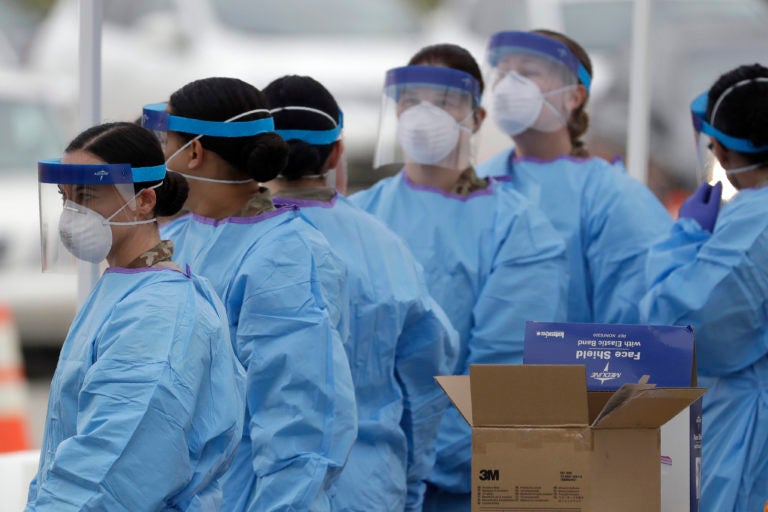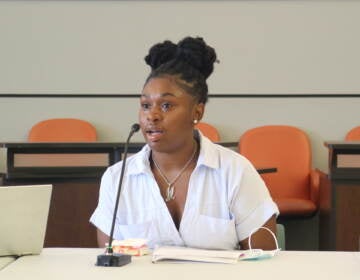Philly area mental health professionals offer free therapy for health care workers
Mental health professionals in the Philly area are offering free online therapy for health care workers working on the front lines of the COVID-19 pandemic.

Medical staff prepare to start working at a drive-through testing center for COVID-19 in Paramus, N.J., on Friday, March 20, 2020. (AP Photo/Seth Wenig)
Mental health professionals in the Philadelphia region are offering to help medical professionals cope with the stress and anxiety of working on the front lines of the COVID-19 pandemic.
“Our staff has decided to offer free teletherapy to those in the health care field dealing with the coronavirus outbreak,” said Linda Welsh, who heads the Anxiety and Agoraphobia Treatment Center (AATC) in Bala Cynwyd.
Welsh said she is concerned about the mental health of those working in area hospitals and at testing sites.
“They are exposing or potentially exposing themselves to the virus time and time again,” she said. “They worry about not having proper protective equipment, and then they have to go home to their families and be concerned about relaying the virus to them. That must add even more complexity to what they are feeling.”
Welsh said medical professionals can contact the AATC to schedule free online or phone sessions.
The pandemic has disrupted many mental health services, which are usually offered in face-to-face or group settings. Having to find different ways to connect to people in need could generally result in a major restructuring in the field, said Jonathan Singer, a professor of social work at Loyola University in Chicago and president of the American Association of Suicidology.
Insurance and privacy barriers to providing more therapy services online are quickly falling away as in-person sessions are no longer an option for so many therapists and their clients, Singer said.
“You have agencies that have said, ‘We need at least five years to provide any teleservices’ and they have now been able to do this in a matter of weeks,” he added.
This crisis is also showing how important it is to provide therapeutic services when, how and where people need them, he said.
“We’re going to find that the ability to provide immediate services in a short time period is going to have a beneficial effect in a way that most people did not anticipate,” Singer said.
For example, if someone is anxious or fearful and can quickly schedule several short sessions online, it could be very helpful in reducing the person’s anxiety and finding resources.
“We’re going to find that we can get an enormous amount of work done in micro sessions — ten or fifteen minutes, a few times a week,” he said.
Singer is concerned about a rise in suicide rates brought on by the pandemic as calls to mental health crisis lines have increased. He added that both isolation and economic downturns are factors that can lead to higher suicide rates, and said it is crucial to check on people who may feel anxious or isolated.
The number for the suicide prevention hotline is 800-273-TALK.
WHYY is your source for fact-based, in-depth journalism and information. As a nonprofit organization, we rely on financial support from readers like you. Please give today.



![CoronavirusPandemic_1024x512[1]](https://whyy.org/wp-content/uploads/2020/03/CoronavirusPandemic_1024x5121-300x150.jpg)


